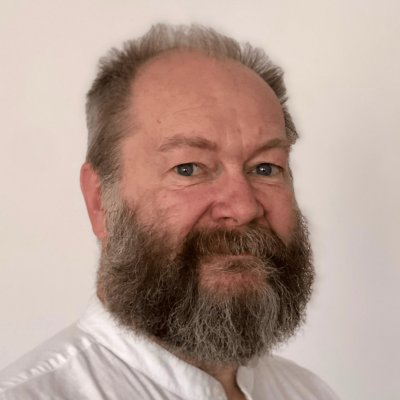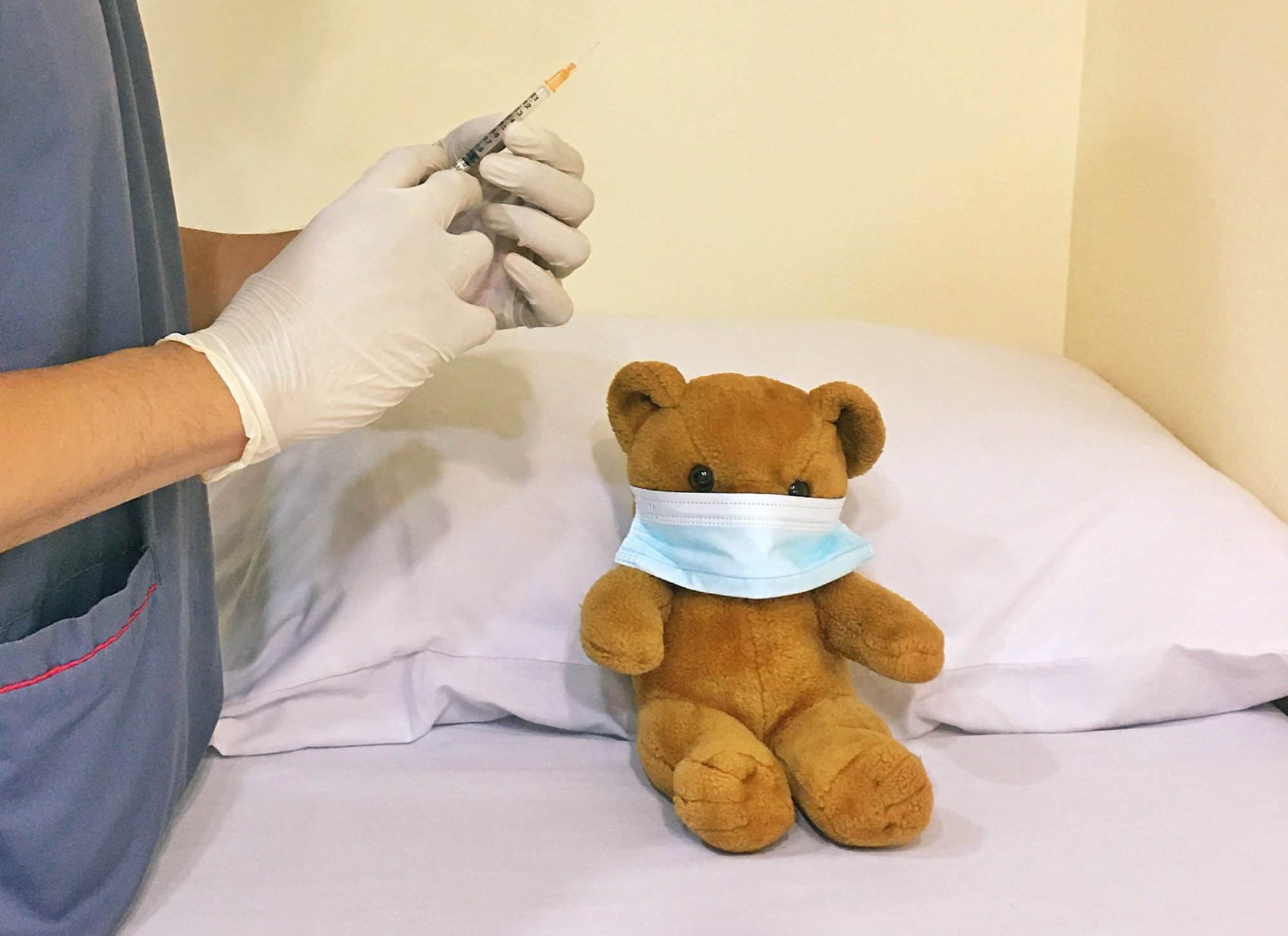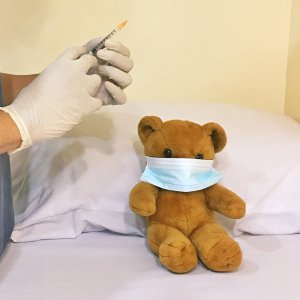It is mind-boggling how numerous are the people who allow themselves to be led like sheep to the slaughter. It seems as if the urge for self-preservation is absent in them. I am reminded of Nescio - quoting from memory: "God speaks in me, only his voice has become a bit weak and old-fashioned, and to myself I sometimes appear to have died." I wonder if these people are not already deceased, and the shot is just a formality, as if the body is neatly handed in for recycling. As if it is no longer an instrument for the development of the soul, but a shell that is already almost empty.
The next question, "When did the life leave them?" Was it the consumer society in which almost everything you touch is a mass product to which your fellow human beings have paid no life-giving attention? Or was it the games on TV, on computer or phone, in which only electrons move, but not your heart and soul? Or was it the many virtual contacts, in which you share thoughts but your breath does not mingle with the other's?
Is it the artificial hormones that suppress your precious fertility and confuse the dance of your cycle with the moon (V), or that only provide you with the form of a virile body (M)? The artificially induced fertility, the in vitro fertilizations, the artificially induced and anesthetized deliveries, the incubator tenderness. Not cared for and raised by loving parents, but by paid professionals.
The education that alienates you from yourself by filling you with facts with no relevance to your life. Hammered in and coughed up, without passion.
Or the medical-technological complex that does not vibrate you with the intelligence of herbs, but administers a one-sided distillate, a malleated molecule - φάρμακο (poison).
They travel everywhere for vacations, but are they there, or are they always vacant?
If there is not much life, or if one has been conditioned by the babysitting state into dependence and helplessness, what does one have to live for. Lights-out, lights-on, it doesn't make much difference, it seems.
A few words from Nescio about the weekday God of the Netherlands, while the devil walks up with his little poet: "The little poet continued his journey through the wastelands of Amsterdam. As far as the eye could see, nothing but Dutch people. Again he greeted someone, a gentleman with a top hat and a dress coat, from a Verkade picture. Now they spoke to each other. There they stood, on the square in front of the Central Station. God was walking on the ground with his yellow straw hat, his walking stick with a silver grip, his coat hanging down his back, wide and indefinable, his collar covered with dandruff, his trouser legs were too wide and too long and hung on his shoes in folds. You could see his sideburns from behind and when he stepped calmly up the two steps to go into the station, the low evening sun glinted in God's polished left shoe. "Who was that gentleman?" asked the poet. "God," said the devil, and the lumps on his forehead grew larger. The little poet did not speak. "Your God, the God of your boss and of your father-in-law and of your boss's accountant and of the manager of the "Nieuwe Karseboom". The God of your aunt, who told you to say hello when you passed by the house of your boss in Delft or Oldenzaal, where ever it was, even if you didn't see anyone, you could never know who did. From your aunt, who always made your sister knit. "A woman must not sit still." The God of all those people, who will say, "I wouldn't have thought that of you," if you try to live once more and who will say, "I always thought that, that couldn't go well," if you have to go into the workhouse later. The God who can't bear to see you free on Saturday afternoons, the God of Mr. Volmer, professor of accounting and business theory, who thinks you look at the sky too much. The God of all who have no choice but to work or be bored. The God of the Netherlands, of the whole country, of Surhuisterveen and Spekholzerheide, donor of the Association of Heads of Large Families and of the Association for the Elevation of Fallen Women. They call that falling. I have fallen too." (From: Dichtertje, 1918)
Give me that shot ...
Photo by Kristine Wook on Unsplash
----
Nog even Nescio over de doordeweekse God van Nederland, terwijl de duivel met zijn dichtertje oploopt: “Dichtend vervolgde ’t dichtertje z’n tocht door de woestenijen van Amsterdam. Zoover ’t oog reikte, niets dan Nederlandsche menschen. Weer groette-n-i iemand, een heer met hoogen hoed en gekleede jas, uit een stuk van Verkade. Nu spraken ze elkaar aan. Daar stonden ze, op ’t plein voor ’t Centraalstation. Op den beganen grond liep God nu met z’n gelen strooien deukhoed, z’n wandelstok met zilveren greep, z’n jas hing slobberig en breed en ondefinieerbaar bruinig over z’n rug, op z’n kraag lag roos, z’n broekspijpen waren te wijd en te lang en lagen met plooien op z’n schoenen. Z’n bakkebaarden kon je van achteren zien en toen i bezadiglijk de twee treden opstapte om in ’t station te gaan, glom de lage avondzon in Gods gepoetsten linkerschoen. „Wie was die meneer?” vroeg ’t dichtertje. „God” zei de duivel en de knobbels op z’n voorhoofd werden grooter. ’t Dichtertje sprak niet. „Jouw God, de God van je baas en van je schoonvader en van je baas z’n boekhouder en van den gérant van de „Nieuwe Karseboom”. De God van je tante, die zei, dat je moest groeten als je langs ’t huis van je baas kwam in Delft of Oldenzaal, waar was ’t ook weer, ook al zag je niemand, je kon nooit weten wie ’t zag. Van je tante, die je zuster altijd liet breien. „Een vrouw mag niet stilzitten.” De God van al die menschen, die zullen zeggen: „Dat had ik van jou niet gedacht,” als je nog eens probeert te leven en die zullen zeggen: „Dat had ik altijd wel gedacht, dat kon niet goed gaan,” als je later in ’t werkhuis moet. De God, die niet hebben kan, dat je ’s Zaterdagsmiddags vrij bent, de God van meneer Volmer, hoogleeraar in ’t boekhouden en de bedrijfsleer, die vindt, dat je veel te veel naar de lucht kijkt. De God van allen die geen andere keus hebben dan werken of vervelen. De God van Nederland, van heel Nederland, van Surhuisterveen en Spekholzerheide, donateur van den Bond van hoofden van groote gezinnen en van de Vereeniging tot opheffing van gevallen vrouwen. Dat noemen ze vallen. Ik ben ook gevallen.” (Uit: Dichtertje, 1918)
----
Nog even Nescio over de doordeweekse God van Nederland, terwijl de duivel met zijn dichtertje oploopt: “Dichtend vervolgde ’t dichtertje z’n tocht door de woestenijen van Amsterdam. Zoover ’t oog reikte, niets dan Nederlandsche menschen. Weer groette-n-i iemand, een heer met hoogen hoed en gekleede jas, uit een stuk van Verkade. Nu spraken ze elkaar aan. Daar stonden ze, op ’t plein voor ’t Centraalstation. Op den beganen grond liep God nu met z’n gelen strooien deukhoed, z’n wandelstok met zilveren greep, z’n jas hing slobberig en breed en ondefinieerbaar bruinig over z’n rug, op z’n kraag lag roos, z’n broekspijpen waren te wijd en te lang en lagen met plooien op z’n schoenen. Z’n bakkebaarden kon je van achteren zien en toen i bezadiglijk de twee treden opstapte om in ’t station te gaan, glom de lage avondzon in Gods gepoetsten linkerschoen. „Wie was die meneer?” vroeg ’t dichtertje. „God” zei de duivel en de knobbels op z’n voorhoofd werden grooter. ’t Dichtertje sprak niet. „Jouw God, de God van je baas en van je schoonvader en van je baas z’n boekhouder en van den gérant van de „Nieuwe Karseboom”. De God van je tante, die zei, dat je moest groeten als je langs ’t huis van je baas kwam in Delft of Oldenzaal, waar was ’t ook weer, ook al zag je niemand, je kon nooit weten wie ’t zag. Van je tante, die je zuster altijd liet breien. „Een vrouw mag niet stilzitten.” De God van al die menschen, die zullen zeggen: „Dat had ik van jou niet gedacht,” als je nog eens probeert te leven en die zullen zeggen: „Dat had ik altijd wel gedacht, dat kon niet goed gaan,” als je later in ’t werkhuis moet. De God, die niet hebben kan, dat je ’s Zaterdagsmiddags vrij bent, de God van meneer Volmer, hoogleeraar in ’t boekhouden en de bedrijfsleer, die vindt, dat je veel te veel naar de lucht kijkt. De God van allen die geen andere keus hebben dan werken of vervelen. De God van Nederland, van heel Nederland, van Surhuisterveen en Spekholzerheide, donateur van den Bond van hoofden van groote gezinnen en van de Vereeniging tot opheffing van gevallen vrouwen. Dat noemen ze vallen. Ik ben ook gevallen.” (Uit: Dichtertje, 1918)


